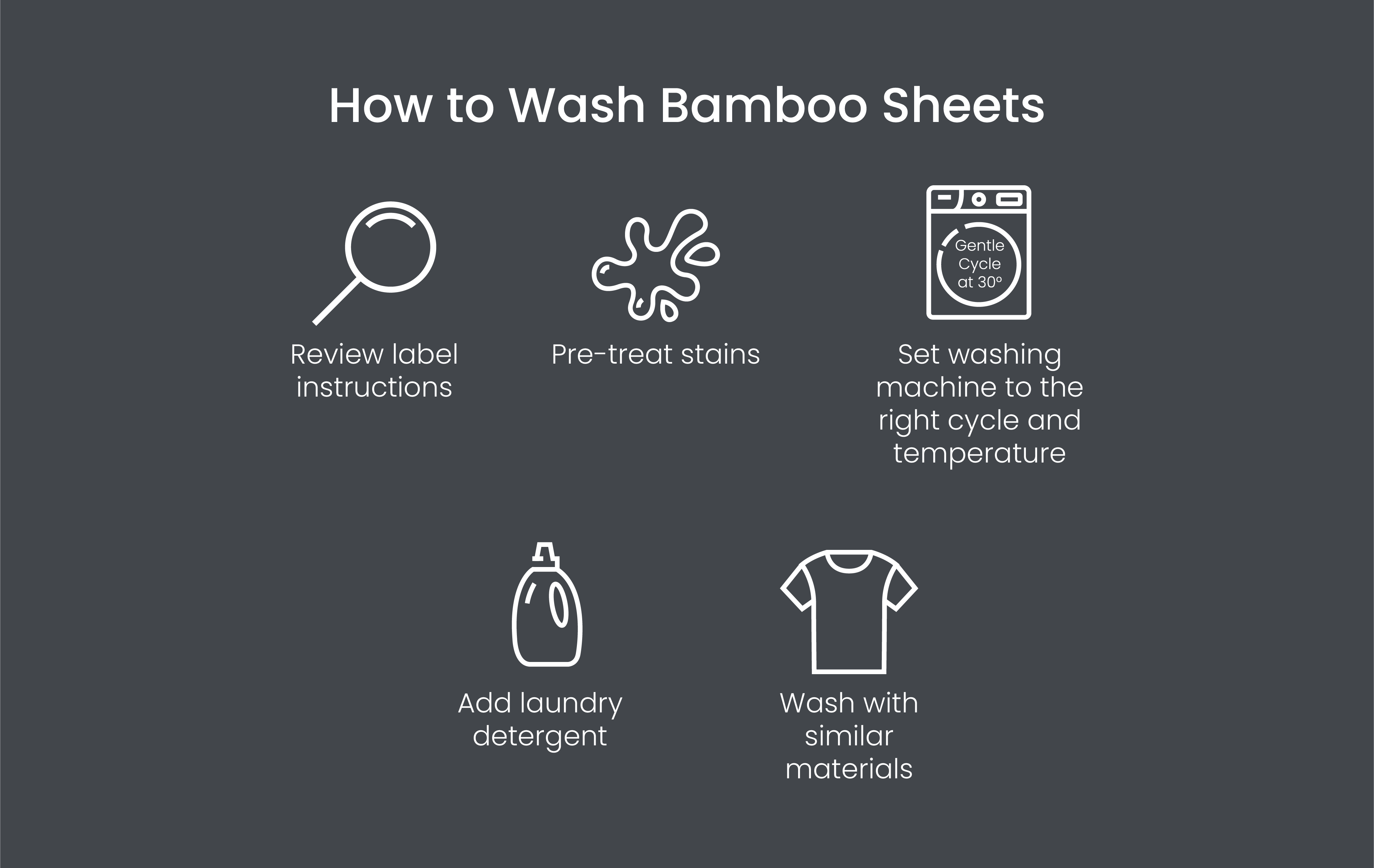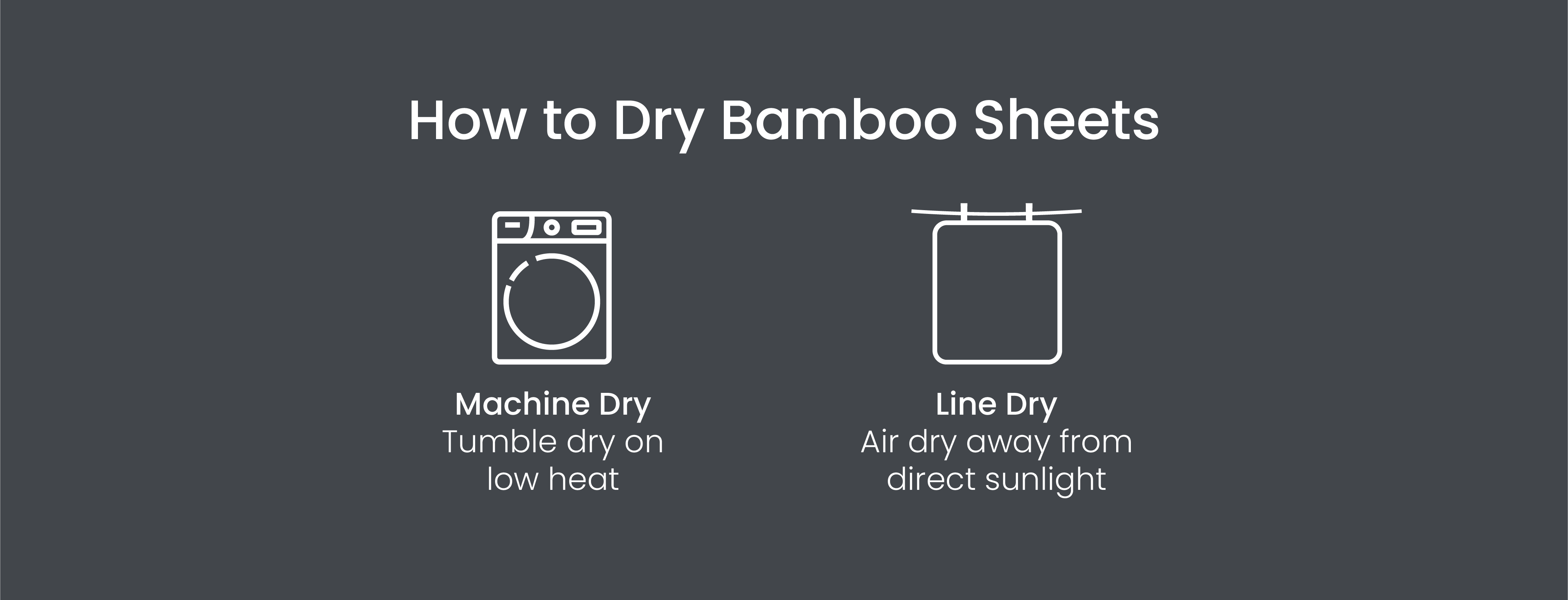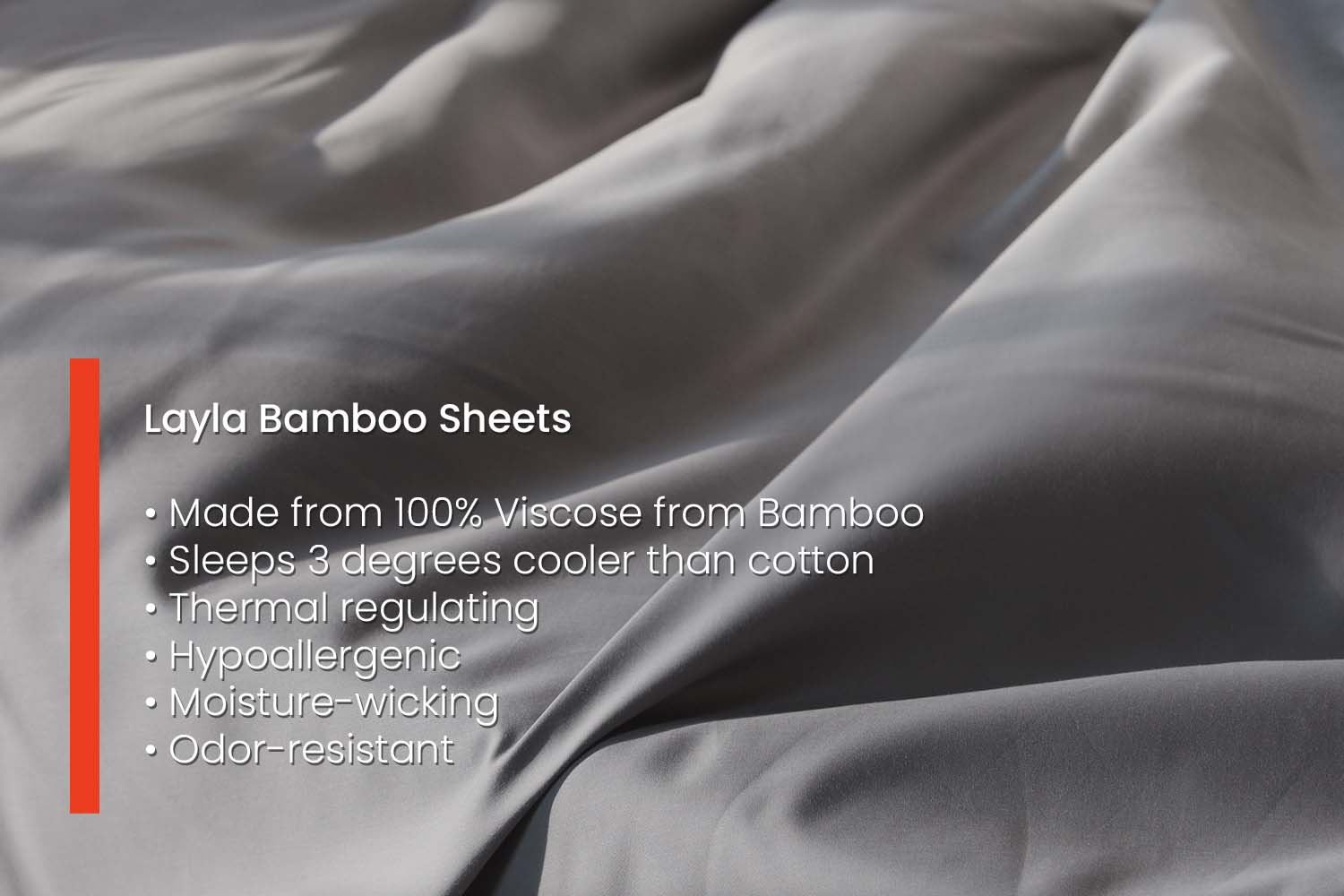How To Wash Bamboo Sheets: Tips for Cleaning Bamboo Sheets

Bamboo sheets are strong and durable but require extra care during washing and drying. Knowing how to care for bamboo sheets is crucial because washing them incorrectly could destroy them. This article will discuss everything you need to know about cleaning bamboo sheets.
- How to Wash Your Bamboo Sheets
- How to Dry Bamboo Sheets
- How Do You Store Bamboo Sheets?
- How Often Should You Wash Bamboo Sheets?
- When Should You Replace Bamboo Sheets?
- Wrapping Up: Sleep Cool with Bamboo Sheets
How to Wash Your Bamboo Sheets
Bamboo sheets are some of the best bed linens because they’re breathable and naturally cooling, making them the perfect pair for your summer blankets. When comparing bamboo vs cotton sheets, bamboo is typically regarded as softer and cooler, but cotton is easier to care for. However, if you want your bamboo sheets to last, you’ll need to know how to properly care for them. Luckily, washing bamboo sheets is just as easy as washing pillows and your comforter. However, they’re not like other types of bedding, so there are several crucial steps you should follow when washing and drying them.
Luckily, you can wash bamboo sheets in the machine, but there are a few basic rules to follow. Here are tips to ensure you wash your bamboo sheets correctly.

Review label instructions
While most brands of sheets are machine washable, you should read the label for bamboo sheets washing instructions to ensure you’re properly caring for them. There are different types of bamboo, and some require more delicate care than others. Generally, most bamboo sheets can be washed in cold water on the gentle cycle and machine dried on low or no heat. However, some manufacturers may suggest line drying your bamboo sheets to prevent pilling.
Pre-treat stains
Before washing your bamboo sheets, you should pre-treat any stains. However, be careful to avoid products that contain bleach, as they can damage the delicate fibers in the blanket and create holes or rough patches. Instead, you should use a natural or enzyme-based stain remover and let it sit.
Set washing machine to the right cycle and temperature
Bamboo sheets are delicate, and using the wrong water temperature and cycle can cause the sheets to rub against each other or damage the fibers. Always wash bamboo sheets in cold water and on the gentle or delicate cycle. Warm water can shrink the bamboo fibers, create pilling, and ultimately reduce the softness of your bedding set, so following these instructions is crucial.
Add laundry detergent
Always use a mild liquid detergent and ensure any powder or liquid is fully dissolved in the water before adding your bamboo sheets. Some laundry pods are less effective in cold water and can stick to your bamboo sheets and cause staining. Additionally, you should avoid harsh chemicals like fabric softeners.
While fabric softener is used for clothes like jeans to make them more comfortable, it won’t make your bamboo sheets softer. Bamboo bedding is already soft, and it only gets softer with each wash as long as you follow the instructions on the label. Instead, these abrasive chemicals can destroy the delicate fibers and contribute to pilling or holes.
Wash with similar materials
You should only wash bamboo sheets with similar materials and avoid garments that have zippers or buttons that can rub against your sheets and cause tears and pilling. You shouldn’t wash your bamboo sheets with fabrics like cotton or flannel. If you don’t have any other sheets or clothes made from bamboo, you can wash your bamboo sheets in a small load. However, in this case, it might be easier and less wasteful to hand-wash your sheets to save on water and electricity.
How to Dry Bamboo Sheets
Knowing how to dry bamboo sheets is just as important as knowing how to wash them because drying them incorrectly can affect their look and feel. Two options for drying bamboo sheets are using your dryer or air drying them. If you plan to dry them in the machine, always use a low tumble cycle with low heat.

Unfortunately, not all dryers have the option for low heat; you might have to use the air dry setting and check your sheets periodically to ensure they’re drying. Avoid high heat because it can shrink the fibers and cause wear and tear.
Air or line drying is often preferred because it doesn’t cause the sheets to rub against themselves and can prevent pilling. However, you should try to avoid putting your bamboo sheets in the sun because it can cause the colors to fade.
Bamboo sheets dry quickly, so whether using a machine or air drying them, they should dry in less time than cotton or other materials.
How Do You Store Bamboo Sheets?
Always clean bamboo sheets before storing them so they’re ready to use when you need them. Bamboo sheets can be placed in a fabric bag or directly in the closet. However, you should avoid placing them in plastic bins, which may contribute to moisture build-up, mildew, and color fading. Like all other sheets, they’re best stored in a cool, dry, and dark place. Luckily, bamboo is mold-resistant because of its moisture-wicking capabilities, but you should try to protect them.
We recommend folding your bamboo sheets after you’ve ensured they’re completely dry. Leaving sheets scrunched up can contribute to wrinkles. However, since bamboo is known for its superior draping ability, a few wrinkles should subside within a few days.
How Often Should You Wash Bamboo Sheets?
Bamboo sheets are antimicrobial and resistant to dust, mildew, and moisture. So, how often should you wash your bed sheets? You should wash bamboo sheets just as often as any other sheets. The general rule of thumb is to wash your bamboo sheets every 7-10 days. However, depending on your unique situation, you may need to wash your bedding more frequently.

For example, if you sleep with your pet, you might want to wash your sheets twice weekly to remove any dirt and fur they’ve tracked into the bed. Meanwhile, if you suffer from allergies, washing your sheets more often can help remove any dust and reduce the potential for flare-ups when trying to fall asleep.
If you don’t use your bamboo sheets every night, you can get away with washing them less often. For example, if they’re in the guest bedroom, you only have to wash them after they’re used and can store them in a bamboo bag until they’re needed again.
And of course, you should always wash your comforter and sheets if you notice a stain on them or happen to spill something on your bed. We’re not against enjoying a snack while watching your favorite movie in bed, but you should be careful and never let crumbs or spills sit on your bedding for too long because they can attract bugs or create a breeding ground for bacteria.
When Should You Replace Bamboo Sheets?
Bamboo sheets are durable and stand up to regular wear and tear in ways other sheets can’t. However, they don’t last forever. One day you might be fluffing pillows on your bed and realize that your bamboo sheets have changed over time. There’s no general rule for when to replace bamboo sheets, but there are noticeable times that it’s time to get new bedding, such as:
- Wear and tear: All sheets are susceptible to wear and tear the longer you use and wash them. The gentle cycle and cold water can prolong your bamboo sheet lifespan, but it can’t protect them forever.
- Rough texture: Like all sheets, bamboo sheets are subject to pilling if you wash them too frequently or with rough materials and cleaning chemicals. Unfortunately, pilling creates a rough texture, making your bamboo sheets less soft.
- Fading: Any sheets are subject to color fading due to sun exposure or simply because your body rubs against them every night. If your bamboo sheets are starting to fade, it’s probably time for new bedding.
- Odors: Your sheets should never have an unpleasant odor. If your sheets still smell after washing and drying, it may indicate a mold or mildew issue you can’t see.
- Loss of elasticity: In general, bamboo sheets aren’t stretchy like jersey cotton. However, they should still fit your mattress. Over time, they can become less elastic, so they’ll no longer stay on your mattress.
Many people choose bamboo bedding because it’s soft, more breathable than cotton, and made from more sustainable materials. So when it’s time to replace your bamboo sheets, don’t toss them in the trash. Instead, you can repurpose them by using them as pet bedding, cleaning rags, or donating them while they’re still usable.
Wrapping Up: Sleep Cool with Bamboo Sheets

Bamboo sheets are good for your sleep quality and the environment. They’re made from sustainable bamboo and are cooler, more breathable, and softer than cotton. In addition, Layla’s bamboo sheets are temperature-regulating to help you stay cool in the summer and warm in the winter and wick away moisture while resisting odor.
Improve your sleep quality with silky soft bamboo sheets from Layla.






